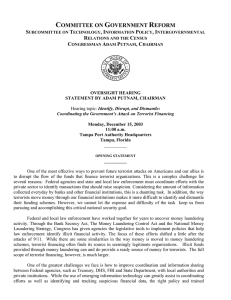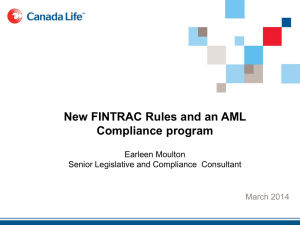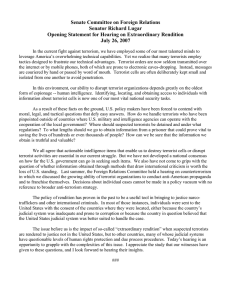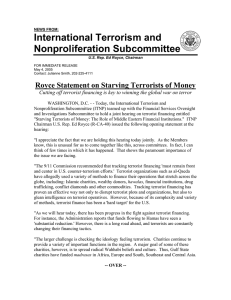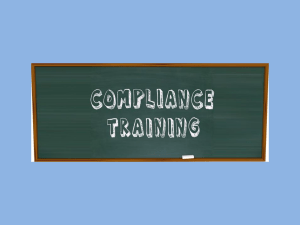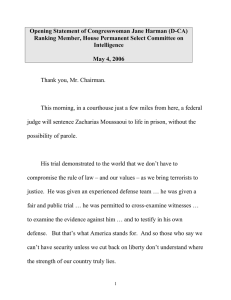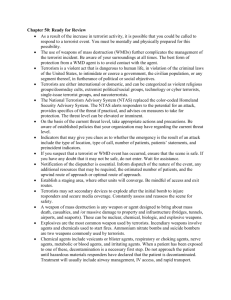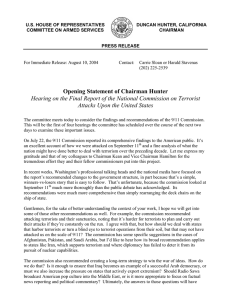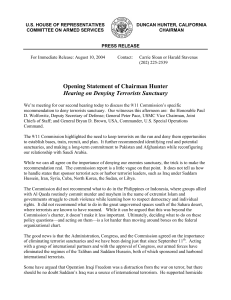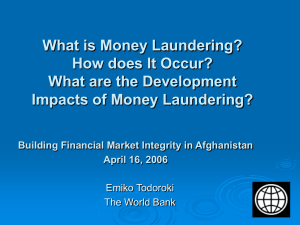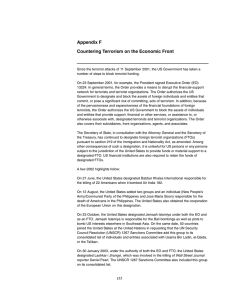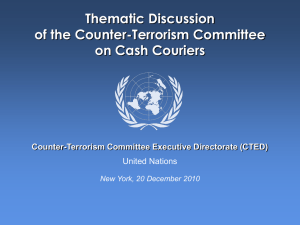C G R
advertisement
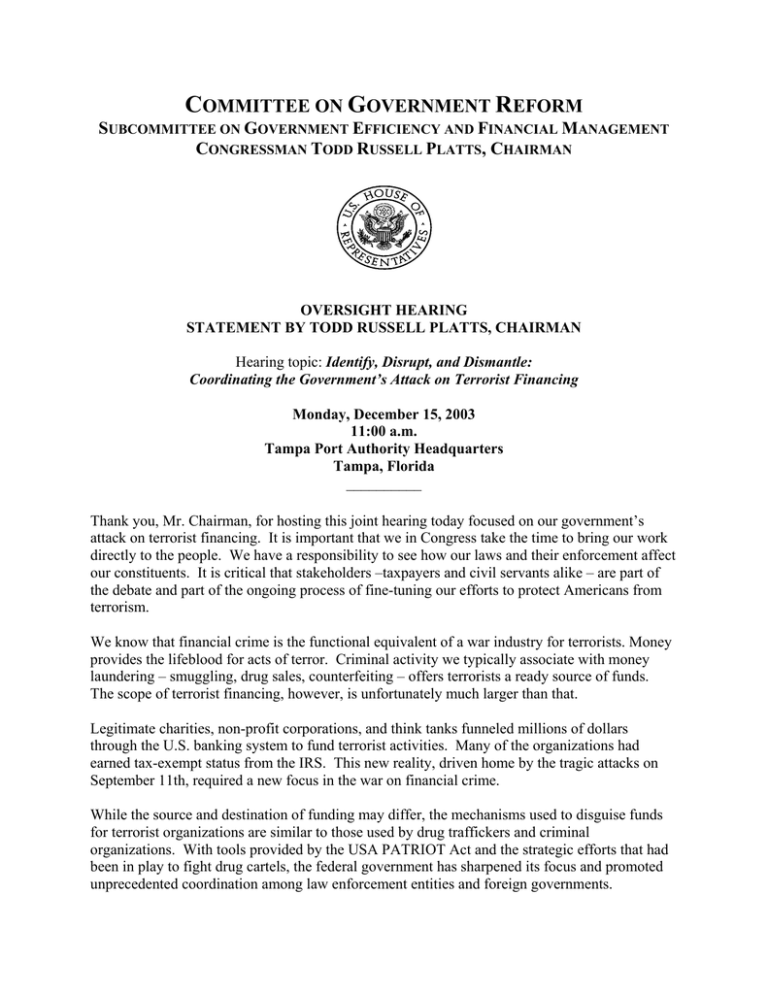
COMMITTEE ON GOVERNMENT REFORM SUBCOMMITTEE ON GOVERNMENT EFFICIENCY AND FINANCIAL MANAGEMENT CONGRESSMAN TODD RUSSELL PLATTS, CHAIRMAN OVERSIGHT HEARING STATEMENT BY TODD RUSSELL PLATTS, CHAIRMAN Hearing topic: Identify, Disrupt, and Dismantle: Coordinating the Government’s Attack on Terrorist Financing Monday, December 15, 2003 11:00 a.m. Tampa Port Authority Headquarters Tampa, Florida __________ Thank you, Mr. Chairman, for hosting this joint hearing today focused on our government’s attack on terrorist financing. It is important that we in Congress take the time to bring our work directly to the people. We have a responsibility to see how our laws and their enforcement affect our constituents. It is critical that stakeholders –taxpayers and civil servants alike – are part of the debate and part of the ongoing process of fine-tuning our efforts to protect Americans from terrorism. We know that financial crime is the functional equivalent of a war industry for terrorists. Money provides the lifeblood for acts of terror. Criminal activity we typically associate with money laundering – smuggling, drug sales, counterfeiting – offers terrorists a ready source of funds. The scope of terrorist financing, however, is unfortunately much larger than that. Legitimate charities, non-profit corporations, and think tanks funneled millions of dollars through the U.S. banking system to fund terrorist activities. Many of the organizations had earned tax-exempt status from the IRS. This new reality, driven home by the tragic attacks on September 11th, required a new focus in the war on financial crime. While the source and destination of funding may differ, the mechanisms used to disguise funds for terrorist organizations are similar to those used by drug traffickers and criminal organizations. With tools provided by the USA PATRIOT Act and the strategic efforts that had been in play to fight drug cartels, the federal government has sharpened its focus and promoted unprecedented coordination among law enforcement entities and foreign governments. It is difficult to quantify the success of the federal government’s attack on terrorist financing. While we know that millions of dollars in assets has been frozen around the world, the ultimate goal of terrorist financing investigations is the disruption of the flow of money – a result much more difficult to quantify. The U.S. has sought and received unprecedented support from other countries in overhauling the laws governing the international financial system and in designating entities as supporters of terror, and we have increased transparency and vigilance in the private sector. Our best weapon to attack money laundering and terrorist financing threats is a comprehensive and coordinated response. In this case, efficiency and effectiveness are not just “good government” rhetoric: they have the potential to save lives by preventing terrorist attacks. Recognizing the need for coordination efforts, in 1998 Congress mandated the development of an annual National Money Laundering Strategy. Much has changed since that time. Five years later, the National Money Laundering Strategy is up for reauthorization, and we in the Congress have a responsibility to take a hard look at whether this type of approach is the most effective. We need to ensure that our dedicated law enforcement and other government officials continue to have the tools they need to be responsive to changes in technology and methodology and the flexibility to keep up with emerging challenges. We must continue to enhance our ability to identify and eliminate various avenues used to launder money, whether it be for drug traffickers, criminal organizations or terrorists. Today we have a panel of witnesses who are fighting this war on the front lines. I would like to thank all of you for your service. Your efforts on this front and your willingness to travel here and provide testimony are evidence of the level of commitment you have. I look forward to your testimony. ###
